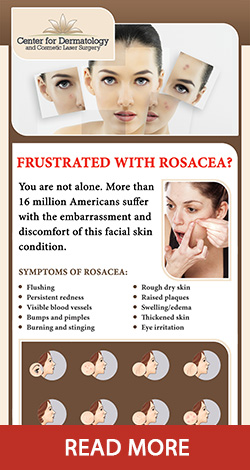Myths And Facts About Acne: Debunking Common Misconceptions
Myths And Facts About Acne: Debunking Common Misconceptions
Blog Article
Staff Writer-Haney Cameron
You might believe that enjoying delicious chocolate or oily foods is the root cause of your acne, yet that's just one of lots of misconceptions swirling around this typical skin condition. In fact, acne primarily stems from stopped up hair roots, not your last dessert. sculpsure vs coolsculpting like these can lead you to take on inefficient skin care practices that may even intensify your scenario. As how often can you do microneedling navigate the truths behind acne, you'll uncover insights that can transform your method to skin care and help you achieve more clear skin. So, what truly lies beneath the surface?
Common Myths Concerning Acne
When it involves acne, many people rely on common myths that can bring about complication and frustration. One widespread myth is that eating chocolate or greasy foods triggers acne. While diet plan can affect skin health and wellness, the straight link between specific foods and acne isn't as specific as several think.
Another typical mistaken belief is that you should scrub your face vigorously to improve outbreaks. Actually, hostile scrubbing can irritate your skin and aggravate acne.
You might also believe that acne just affects teens, however grownups can experience it also, typically because of hormone adjustments or tension. Some individuals think that sun tanning can clean up acne, however sunlight direct exposure can actually result in skin damage and worsen outbreaks in the long run.
Lastly, several believe that making use of rough items will certainly eliminate acne swiftly. Nonetheless, these items can strip your skin of its natural oils, bring about raised inflammation and even more breakouts.
Scientific Facts Behind Acne
Comprehending the scientific truths behind acne can encourage you to tackle this usual skin problem better.
Acne occurs when hair follicles end up being clogged with oil, dead skin cells, and bacteria. This process usually starts with an overproduction of sebum, the oil your skin naturally creates. Hormonal modifications, especially during the age of puberty or menstruation, can activate this excess oil.
Bacteria referred to as Propionibacterium acnes prosper in these clogged up pores, bring about swelling. When Read the Full Piece of writing responds, it can cause redness and swelling, causing those annoying pimples or cysts.
Genes likewise contribute; if your moms and dads had acne, you could be more prone to it.
Diet regimen and stress and anxiety levels can affect acne also, but study is still developing in these locations. While enjoying greasy foods will not directly create outbreaks, a well balanced diet plan can sustain your skin health.
Similarly, managing tension can minimize hormonal variations that may intensify acne.
Tips for Managing Acne
Managing acne efficiently requires a combination of day-to-day skin care routines and lifestyle modifications. Begin by developing a regular skincare regimen. Clean your face twice a day with a mild, non-comedogenic cleanser to eliminate dust and excess oil. Stay clear of scrubbing as well hard, as this can aggravate your skin and get worse acne.
Next, integrate products including salicylic acid or benzoyl peroxide to assist protect against outbreaks. Always follow up with a lightweight, oil-free moisturizer to keep your skin hydrated. Do not neglect sunscreen; go with non-comedogenic alternatives to shield your skin from UV damage without obstructing pores.
Past skin care, take notice of your diet regimen. Limitation sweet and oily foods, and concentrate on fruits, veggies, and entire grains. Staying moisturized is essential, so drink a lot of water throughout the day.
Furthermore, manage tension via activities like yoga exercise, reflection, or workout, as anxiety can cause breakouts.
Lastly, prevent choosing or standing out pimples. This can bring about scarring and further swelling. If your acne persists, seek advice from a skin specialist for customized therapy alternatives.
Conclusion
Finally, it's essential to separate reality from fiction when it pertains to acne. By disproving typical misconceptions, you can better recognize your skin and make notified choices for your skin care routine. So, why continue to believe in outdated concepts when the reality can equip you? Accept healthier practices, focus on gentle cleansing, and remember that handling acne is a journey. With the appropriate knowledge, you're one action better to more clear, healthier skin.
